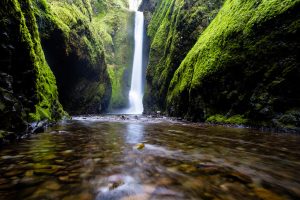What Counts as Nature? It All Depends
Kim Eckart · UW News · November 15, 2017
Featuring Peter Kahn, Nature and Health researcher and Steering Committee member

Think, for a moment, about the last time you were out in nature. Were you in a city park? At a campground? On the beach? In the mountains?
Now consider: What was this place like in your parents’ time? Your grandparents’? In many cases, the parks, beaches and campgrounds of today are surrounded by more development, or are themselves more developed, than they were decades ago.
But to you, they still feel like nature.
That’s what University of Washington psychology professor Peter Kahn calls “environmental generational amnesia” — the idea that each generation perceives the environment into which it’s born, no matter how developed, urbanized or polluted, as the norm.